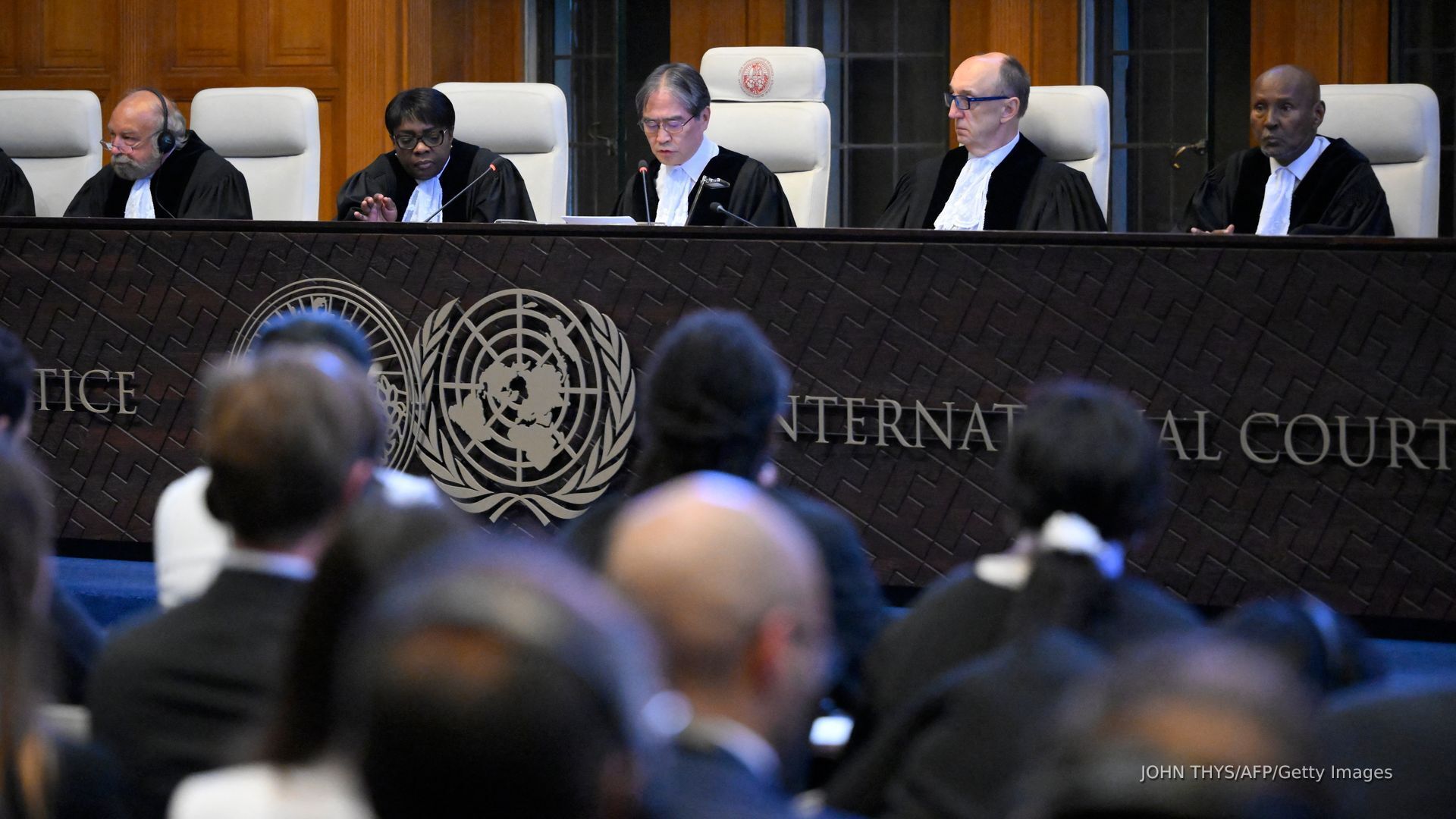The United Nations’ International Court of Justice determined that nations may breach international law if they fail to improve their efforts in safeguarding the environment from climate change. The advisory opinion also indicated that countries most affected by climate change might be eligible for compensation from more affluent nations.
ICJ ruling
“If a state fails to take suitable measures to safeguard the climate system… this could be considered an internationally wrongful act,” said court President Yuji Iwasawa during the hearing reported by theAssociated Press.
This judgment implies that environmental activists may file legal actions against their own nations for not adhering to the court’s ruling.
The real importance of the discovery is that local courts are capable of making binding rulings on their nations and businesses located within their jurisdictions,” said Michael Gerrard, a professor and director of the Sabin Center for Climate Change Law at Columbia Law School, to Straight Arrow News. “The ruling today is merely an advisory opinion, but it gives local courts and the lawyers appearing before them the potential to achieve much more.
The court’s decision calls on significant emitters to come together and adhere to the guidelines established in the 2015 Paris Agreement, a global accord addressing climate change that was signed by 195 nations.
President Donald Trump withdrewthe United States from the agreement during each of his two terms.
Each advanced nation produces emissions that exceed the levels required to meet the goals set by the Paris Climate Agreement,” Gerrard stated. “We are significantly lagging, and the International Court of Justice agreement enhances the legal resources available for organizations within nations to urge their countries to take greater action.
China is by all means theworld’s top polluter, but the U.S. ranks second on that list. With this ICJ decision, China, the United States, and other nations could be required to offer financial support to countries such as the Pacific Island nation of Vanuatu.
Activists from Vanuatu initiated this legal action and marked their success.
“This advisory opinion serves as a resource for climate justice. And let me tell you, the ICJ has provided us with a powerful instrument to continue the struggle for climate justice,” Vishal Prasad, a law student who advocated for Vanuatu to file the case, stated.Reuters.
Other outletsSeveral have stated that this decision will enable nations to initiate legal actions against one another, but Gerrard claims that this is not accurate.
Impact on America
The Trump administration in the U.S. has shown reduced interest in implementing climate-focused policies, suggesting that this decision might not carry as much weight within the country.
The U.S. courts have generally not adhered to rulings from international tribunals in such cases,” Gerrard stated. “Therefore, it has minimal direct impact on the U.S. It could influence the activities of U.S. companies operating in countries that implement the ruling. It may create some diplomatic pressure on the U.S. to take further action, but the current administration appears indifferent to this.
The White House provided The Associated Press with its response to the decision.
“Once again, President Trump and the whole administration is dedicated to focusing on America first and emphasizing the needs of regular American citizens,” said White House spokesperson Taylor Rogers.
The administration is currently drafting a measurethat would eliminate the federal government’s authority to oversee greenhouse gas emissions and address climate change, resulting init harder to access climate change data.
What happens next?
The subsequent steps will depend on each nation’s decision to implement additional measures against climate change.
The ICJ’s advisory opinion highlights that countries have legal responsibilities to take action,” Joana Setzer, an Associate Professor at the Grantham Research Institute on Climate Change & the Environment, said to Straight Arrow News. “By linking these duties to both human rights law and scientific agreement, the Court confirms that governments need to reduce their own emissions and make sure companies do the same. This creates a solid legal basis for holding nations and top polluters responsible in upcoming legal cases.
Over the past few years, advocates have initiated legal actions against their respective governments concerning climate change.
Renowned environmental activist Greta Thunberg allied with hundreds of others in a legal action against her home country, Sweden, regarding climate change, yet the nation’s highest courtrejected the suit.
A group of Swiss women successfully initiated alawsuitin opposition to their government, asserting that the administration had breached human rights by not implementing adequate measures to address climate change.
“The International Court of Justice determined that climate change poses a serious risk, stating that no other crucial human rights—such as the right to life or the right to food—can be fulfilled without a stable climate system. As a result, it is the responsibility of every nation to combat climate change,” Gerrard stated.
Domestically, Hawaii recently settled a lawsuitwith 13 young individuals who claimed the state failed to adequately cut greenhouse gas emissions. The agreement required the state to implement specific measures to achieve this, even if it meant increasing taxes to fulfill the settlement.
The next United Nations climate conferenceis scheduled for November in Belém, Brazil. Brazil is also among the top ten polluters globally.






